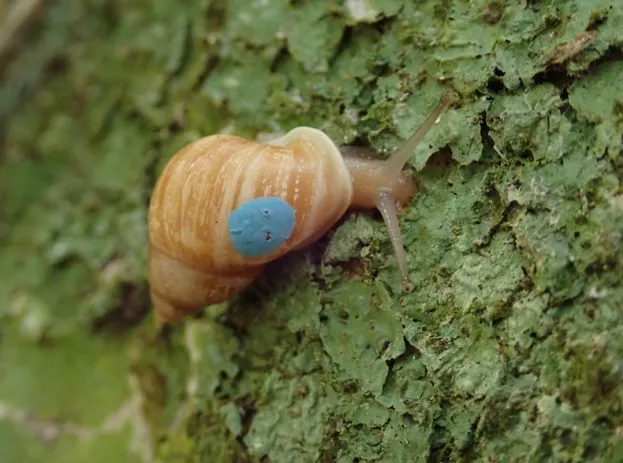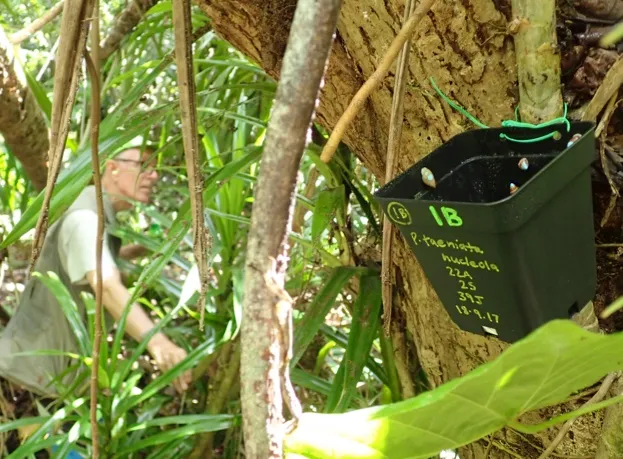The Zoological Society of London (ZSL) is celebrating the successful reintroduction of more than 2,000 tiny tree snails to the islands of Moorea and Tahiti in the Pacific Ocean during September.
For three decades ZSL London Zoo has worked collaboratively with zoos and collections around the world and successfully coordinated a global breeding programme for the endangered Partula snail.
A group of snails were also released in 2016 and according to the team they are already showing promising signs of becoming established in the area.
“Though we’re still in the early stages of the reintroduction process, which will take several more years to complete, we’re very optimistic,” says Paul Pearce-Kelly, coordinator of the Partula snail breeding initiative.
“These tiny snails have proven themselves to be incredibly robust, and have been quickly (in snail terms anyway) dispersing into their naturally high tree habitat following their release – something we were delighted to see.”

Dispersing Partula on tree trunk © ZSL
Partula snails are specially adapted to live in different volcanic valleys across French Polynesia.
However, the species came close to extinction in the 1980s after the rosy wolf snail from Florida was introduced in the 1970s.
The American snail had been introduced for the islands in an attempt to wipe out the African giant land snail, that had been previously introduced, but it preyed upon the tiny native Partula snails instead.

Partula in release pot © ZSL